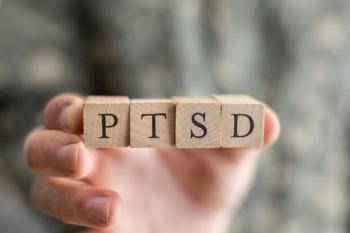
Preparing Patients for the Fourth of July Holiday
Prepare your patients for the Fourth of July with expert tips from Roger Rivera, FNP, PMHNP, DNP, on managing risky behaviors, adherence distractions, PTSD-related triggers, and sensory overload during the holiday.
CLINICAL CONVERSATIONS
Although holidays are usually a time of celebration and festivities, the crowds, excitement, and fireworks associated with Independence Day may be less welcomed by patients with psychiatric disorders like posttraumatic stress disorder (PTSD), anxiety disorders, and schizophrenia.
Psychiatric Times asked
Psychiatric Times: Should there be concern for patients with PTSD as we approach the Fourth of July holiday? What strategies can clinicians share with their patients to lessen the stress/impact?
Roger Rivera, FNP, PMHNP, DNP: Research indicates that veterans and individuals with PTSD experience heightened anxiety and flashbacks due to fireworks. In an
In addition, psychiatrists can provide targeted assistance to patients who are sensitive to loud noises via several effective strategies. First and foremost is the preparing and planning. Advise patients to plan to stay indoors or in quieter, safer environments during firework shows. For example, patients can arrange to visit a friend’s house in a quieter neighborhood or book a room in a soundproof hotel.
Patients can also employ sound dampening techniques like the use of noise-canceling headphones or earplugs to significantly reduce the impact of loud noises. Patients might also consider using white noise machines or listening to calming music through noise-canceling headphones during fireworks displays.
Teach patients grounding techniques, such as deep breathing exercises, mindfulness practices, and sensory grounding, to help them stay present and manage anxiety during fireworks. For instance, a patient could use the 5-4-3-2-1 method (ie, identify 5 things they can see, 4 things they can touch, 3 things they can hear, 2 things they can smell, and 1 thing they can taste) to distract from the anxiety-provoking noise.
Advise patients to set up a safe space in their home where they can retreat if fireworks cause distress. This could be a basement room with minimal windows or a bedroom equipped with blackout curtains and comfortable furnishings to create a calming environment. Similarly, encourage them to engage in calming activities, like listening to soothing music or watching a favorite movie. This not only serves as a distraction but also promotes relaxation and comfort.
Psychiatric Times: Would similar strategies support patients with other anxiety disorders?
Rivera: For patients with other anxiety disorders, particularly those who have issues with crowds, several strategies can be beneficial. Planning, once again, is important. Encourage patients to choose less crowded places and times for outings to manage anxiety. For example, visiting popular locations early in the morning or on weekdays can help avoid large crowds.
Leveraging supportive companions is also important. Advise patients to go out with trusted friends or family members who can provide emotional support. This can make social interactions less daunting and provide immediate assistance if anxiety symptoms arise.
Patients should be encouraged to have exit strategies, developing clear plans for leaving a situation if it becomes overwhelming. Patients should be aware of the nearest exits and have a predetermined signal with their companions to leave a situation discreetly if needed.
Finally, teach and reinforce cognitive-behavioral therapy (CBT) techniques to challenge and manage anxious thoughts in real-time. For instance, patients can practice thought-stopping techniques or use cognitive restructuring to reframe negative thoughts about crowds.
Psychiatric Times: What are your thoughts on using safety plans with patients?
Rivera: Safety plans are highly beneficial, as they provide a structured approach to managing potential stressors. Plans should include trigger identification (ie, recognizing potential stressors and planning strategies to avoid or cope with them), support systems (ie, a list of emergency contacts and nearby safe locations), coping mechanisms (ie, detailed strategies for managing symptoms, such as grounding techniques or distraction activities), and medication management (ie, ensure patients have sufficient medication and understand how to manage their doses during stressful times).
Evidence supports the effectiveness of safety plans to reduce anxiety and improve coping skills in stressful situations.
Psychiatric Times: Sensory overload over this holiday can be a problem for patients with serious mental illness (SMI), particularly schizophrenia. How can clinicians better prepare their patients for what they may experience?
Rivera: Clinicians can better prepare patients with SMI to cope with potential sensory overload via education and awareness—explain what sensory overload is and why it may occur to help patients understand their experiences. Share coping strategies, such as limiting exposure to triggers, using sensory aids (eg, sunglasses, earplugs), and practicing relaxation techniques. Also remind patients it is important to maintain routines. Encourage them to stick to their routine as much as possible to maintain stability.
Psychiatric Times: How do you address impulse control issues in patients to help them avoid engaging in risky behaviors over holidays?
Roger Rivera, FNP, PMHNP: Patients with impulse control issues are particularly vulnerable during holidays, when the combination of festive activities, peer pressure, and increased availability of potentially harmful substances can exacerbate risky behaviors. As a psychiatrist, it is crucial to adopt a multifaceted approach to mitigate these risks, drawing on both clinical strategies and empirical evidence.
Research underscores the effectiveness of combining psychoeducation with practical strategies in managing impulse control issues. Studies have shown that CBT approaches, which include elements like delay tactics and mindfulness, significantly reduce impulsive behaviors in patients with disorders such as attention-deficit/hyperactivity disorder and borderline personality disorder. Furthermore, the involvement of a supportive network is consistently associated with better treatment outcomes, as it provides patients with both emotional support and practical assistance in managing their impulses.
There are specific strategies that address education and awareness and impulse control as well as engage alternative activities and support systems.
Awareness and education. Educate patients about the specific risks associated with impulse control disorders, especially during holidays. For example, the use of illegal fireworks not only poses physical danger but can also lead to legal consequences. Similarly, the misuse of substances can result in acute health issues, exacerbation of psychiatric symptoms, and potential long-term dependency. Discuss the immediate and long-term consequences of impulsive behaviors to help patients understand the gravity of their actions. For instance, explain how substance use can interfere with their treatment goals or how legal troubles could impact their personal and professional lives.
Impulse control strategies. Teaching patients to implement delay tactics can be effective in managing impulses. This might involve techniques like counting to 10 before acting, removing themselves from triggering environments, or engaging in a brief distracting activity. Mindfulness and grounding techniques can help patients become more aware of their impulses and learn to manage them. Practices such as deep breathing, meditation, and progressive muscle relaxation can reduce impulsivity and improve emotional regulation.
Alternative activities. Encourage patients to engage in safer, positive activities as an alternative to risky behaviors. For example, suggest involvement in community events, sports, or creative pursuits to help redirect their focus and energy. Help patients create a structured plan for the holidays, including scheduled activities and hobbies, to minimize idle time that might otherwise lead to impulsive actions.
Support systems. Supportive friends and family members can provide an additional layer of monitoring and guidance. These individuals can help patients stay accountable and offer immediate support when they feel the urge to engage in risky behaviors. Educate the patient’s support system about the nature of impulse control disorders and effective intervention strategies can enhance their ability to assist the patient. This might include recognizing warning signs and knowing how to provide appropriate support or intervention.
Psychiatric Times: Heat can also be an issue, even for otherwise healthy individuals. Any advice about discussing outdoor activities with patients?
Rivera: Heat can significantly impact patients with SMI, exacerbating symptoms and leading to adverse health outcomes. High temperatures can cause dehydration and fatigue, which can worsen symptoms such as confusion, agitation, and lethargy. Patients with SMI may have a reduced capacity to recognize and respond to these physical stressors, increasing their risk of heat-related complications. Heat can also contribute to increased irritability and behavioral changes. For individuals with conditions like schizophrenia or bipolar disorder, this can lead to heightened aggression or mood swings.
Research has shown that extreme temperatures are correlated with an increase in hospital admissions for individuals with schizophrenia. This is attributed to the combined effects of heat on physiological stress and the potential for dehydration and medication side effects. In addition, many psychotropic medications can impair the body’s ability to regulate temperature, further increasing the risk of heat-related issues. Antipsychotics, for example, can disrupt thermoregulation, making patients more susceptible to hyperthermia.
To prevent heat-related issues, I recommend that patients drink plenty of water throughout the day, particularly if they are outdoors, and avoid being outside during the hottest parts of the day (typically between 10 AM and 4 PM) to help mitigate risks. I also encourage patients to stay in air-conditioned environments or use cooling strategies, such as fans and cool baths, to prevent overheating.
Psychiatric Times: In your experience, how do holidays and vacations impact treatment adherence?
Rivera: Disruption in schedules during holidays can significantly impact medication adherence and symptom management in psychiatric patients. The altered routines, irregular mealtimes, and varying sleep patterns often associated with holidays can lead to patients forgetting doses or finding it challenging to maintain their regular medication schedules. This can result in an increase in psychiatric symptoms, such as anxiety, depression, and mood instability, as the therapeutic levels of medications are not consistently maintained.
Impact on medication adherence. Patients may forget to take their medications amidst the holiday festivities and activities. For example, a patient who normally takes their medication with breakfast might skip their dose if they sleep in or have a late brunch. In addition, the change in daily structure can disrupt established medication routines. A patient who follows a strict schedule at home may struggle to maintain this regimen while traveling or attending holiday events.
Strategies to mitigate disruption. Technology can play a crucial role in maintaining adherence. Patients can be encouraged to use medication reminder apps, set alarms on their phones, or use pill organizers to keep track of their doses. Research indicates that such reminders significantly improve adherence rates, particularly during times of routine disruption. Pill organizers also can help patients keep track of their medications, reducing the risk of missed doses. This is particularly useful for patients with complex medication regimens.
Similarly, pre-holiday planning is essential. Discuss potential challenges with your patients and encourage patients to develop a proactive strategy to prepare for disruptions. For instance, patients can pack their medications in easily accessible places and set reminders to take their doses at the usual times, regardless of their activities.
Finally, remind patients of the importance of adhering to their regular routine as much as possible. This includes maintaining consistent sleep patterns, mealtimes, and exercise routines, which can all support medication adherence and overall mental health. Clinicians should educate patients on the benefits of routine and how even small deviations can affect their psychiatric stability.
Addressing detrimental activities. Holidays often present opportunities for increased substance use, which can be detrimental to patients' psychiatric health. It is imperative to emphasize the importance of avoiding substances that could exacerbate their conditions. For example, a patient with a history of alcohol dependence might be advised to attend support group meetings or have a trusted friend or family member help monitor their substance use during the holidays. Similarly, encourage patients to uphold their therapeutic values and routines as closely as possible. This might include engaging in familiar, healthy coping mechanisms rather than turning to detrimental activities. For example, a patient who regularly practices mindfulness meditation should be reminded to continue this practice during the holidays, even if it means finding a quiet space away from the festivities.
Research in behavioral health consistently supports the notion that maintaining routines and structured environments contributes significantly to better health outcomes in psychiatric patients. Studies have shown that routine disruptions can lead to increased relapse rates in conditions such as bipolar disorder and schizophrenia. By maintaining a structured approach to treatment, including medication adherence and the continuation of therapeutic activities, patients are better equipped to manage their conditions effectively.
In summary, while holidays can disrupt normal schedules and pose challenges to medication adherence and symptom management, proactive planning, utilizing reminders, maintaining routines, and avoiding detrimental activities can help mitigate these effects. It is essential to reinforce the importance of these strategies with patients to ensure continuity of care and stability in their psychiatric health.
Psychiatric Times: Emergencies during holidays can be extra stressful, as clinicians may take off time and emergency departments are impacted by holiday crowds. What advice can you share to ensure patients are prepared to seek appropriate support during emergencies?
Rivera: Ensuring patients have access to care during holidays involves several proactive measures.
Emergency contacts. I supply patients with comprehensive lists of emergency contacts, including crisis hotlines, local emergency services, and nearby hospitals. This ensures they have immediate access to support, if needed.
Crisis plans. Creating individualized crisis plans that outline specific steps to take in an emergency is essential. These plans include recognizing early warning signs, contacting designated support persons, and knowing when to seek professional help. For example, a patient prone to panic attacks might have a plan that includes breathing exercises, calling a trusted friend, and visiting the nearest emergency department if symptoms escalate.
Offering telehealth services. Providing telehealth services ensures that patients can access urgent consultations even during holidays. This can include scheduled check-ins, emergency video calls, and 24/7 availability for critical situations.
Psychiatric Times: How do you address these issues with your patients?
Rivera: Before holidays, I engage patients in detailed discussions about the specific challenges they may face. This includes identifying potential triggers, such as social gatherings or travel, and developing personalized coping strategies. For example, patients prone to anxiety might be advised to practice relaxation techniques or establish boundaries for social interactions. I also explain how maintaining medication schedules can prevent symptom exacerbation and contribute to overall stability. Providing literature and resources that patients can refer to independently reinforces this message.
Evidence shows that structured pre-holiday planning and the use of reminder systems are effective in enhancing medication adherence.
Psychiatric Times: Can you share any patient experiences, while maintaining confidentiality?
Rivera: Certainly, I have been working with 2 long-term patients whose cases might be of interest to readers.
Case 1: Marine Corps Veteran with PTSD
A Marine Corps veteran who is a patient experiences severe PTSD triggered by the loud noises of fireworks. For several years, we have developed and refined a safety plan to help him navigate these triggers during holidays like the Fourth of July.
This patient decided to use physical activity as a coping mechanism. He now trains in jiu-jitsu with a supportive group of fellow veterans for a few hours during peak fireworks times. They create a controlled and positive environment, complete with upbeat music that helps drown out the external noise. This strategy not only provides a distraction but also leverages physical exertion and camaraderie, both of which are therapeutic for him. His anxiety during fireworks has significantly decreased as a result.
Case 2: 9/11 Survivor With PTSD
Another long-term patient is a 9/11 survivor who struggles with PTSD, particularly triggered by loud, sudden noises. To manage his anxiety during holidays with fireworks, we incorporated his passion for music into his safety plan.
He practices the drums with his friends in a band setting during these times; granted he is a phenomenal drummer. By immersing himself in playing music and engaging socially, he successfully mitigates the impact of the fireworks. The structured activity of playing guitar not only distracts him but also provides a sense of control and accomplishment, further helping to manage his symptoms.
Psychiatric Times: Any other clinical pearls, insights, or words of wisdom to share?
Rivera: I have found that the key to navigating holidays effectively lies not only in meticulous pre-planning and maintaining routines, but also in deeply understanding the nuances of each patient's chemical management needs. This understanding underscores the importance of tailoring strategies to meet individual symptoms and recovery trajectories. By creating a supportive environment and fostering open communication, we empower our patients to actively participate in developing coping plans that suit their unique circumstances.
Moreover, it's essential to acknowledge the unpredictability that may accompany these periods, especially for individuals with complex histories.
I have witnessed firsthand how such personalized approaches not only alleviate immediate anxieties but also foster long-term resilience. By instilling hope and reinforcing the idea that recovery is a dynamic journey, we empower our patients to navigate future challenges with confidence and optimism. This holistic approach ensures that each holiday season becomes an opportunity for growth and healing, marking significant milestones in their therapeutic progress.
Dr Rivera is a clinician at Mente Suave Psychiatry & Medicine in Kissimmee, Florida, and is actively engaged in PTSD research. Prior to his work as a clinician, he served in the United States Marine Corps in Infantry and Light Armored Reconnaissance units.
Newsletter
Receive trusted psychiatric news, expert analysis, and clinical insights — subscribe today to support your practice and your patients.







